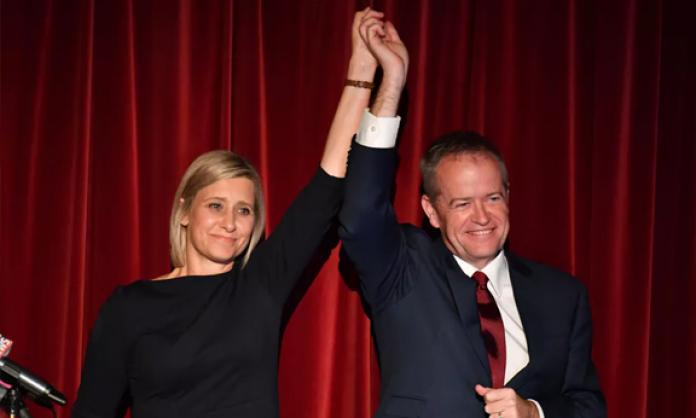Malcolm Turnbull has boasted for months about his government’s success in pushing through a right wing economic agenda, shovelling money into the hands of the well-off at the expense of the working class. Big tax cuts for big business were to be the next cab off the rank. The media have been reporting that the government has its mojo back, its polling deficit shrinking a touch in recent months.
But the Super Saturday by-elections put a dent in the government’s confidence. The contest for Longman, in south-east Queensland, has done the most damage.
Labor’s strategy of running an “us versus them” campaign – “money for hospitals not the banks” – worked a treat. The party received a primary vote swing of nearly 5 percent, giving it a comfortable two-party preferred victory of 55-45 percent. And the Liberal National Party primary vote dropped by 10 percent. In a seat that the LNP has held for 17 of the 22 years it has existed, the conservatives will be lucky to get a primary vote of 30 percent.
Longman, with its large population of retirees, self-employed and workers in small businesses, is not a natural fit for Labor. But the ALP romped home in its main urban areas of support. In Caboolture, the biggest town, Labor picked up two-party preferred swings of between 7 and 10 percent. In Morayfield, Labor’s two-party vote was up by 5-6 percent. In Burpengary, it was 6-8 percent. In Dakabin, nearly 5 percent. And in Narangba, 6.5 percent.
In these areas, Labor scored a two-party preferred vote of between 60 and 73 percent. By focusing on the core issues affecting working class lives, Labor did handsomely.
Party president Wayne Swan, member for the seat of Lilley in Brisbane’s northern suburbs, was dead right in summing up the lessons:
“This is an emphatic rejection of Malcolm Turnbull’s policies of trickle-down economics, which basically boil down to huge tax cuts for large corporations and high income individuals and wage stagnation for everybody else. The price of those tax cuts is cuts to health and education.”
Any prospect that Turnbull would rush to the polls on the back of two by-election victories has been snuffed out. Longman is no longer an opportunity for the Coalition; it is a danger. If the result were reproduced across Queensland in the next federal election, the Turnbull government would fall. Seven of its lower house MPs have margins of less than 3.5 percent. The government would lose home affairs minister, and potential future leader, Peter Dutton. He holds Dickson, immediately to the south of Longman, by less than 2 percent.
Racist loudhailing
If the government has been running hard on right wing economic policies, its attempt to buttress its electoral support by racist loudhailing failed to do it any favours. Breaking from the practice established by the Howard government, the LNP preferenced One Nation ahead of the ALP and secured One Nation preferences in return.
But with One Nation voters disinclined to follow the party’s how to vote card, the overall contribution of One Nation was to draw primary votes from the LNP and then send a fair swag of them to the ALP.
One Nation’s vote of 16 percent, an increase of more than 6 percent since 2016, is worrying; a significant vote of confidence in a party led by a racist demagogue. But if any comfort can be taken from this, One Nation’s tally was lower than the predicted 20 percent and was also down on the 24 percent who voted for the party in the 2017 state election in the seats that overlap with Longman.
Refuting, once again, the stereotype that One Nation gets its vote from the working class, the Hansonite vote was highest in the small coastal areas dominated by retirees and in the rural areas along the D’Aguilar Highway. Where Labor’s primary vote was highest, the urban centres, One Nation did worst.
Looking ahead
Turnbull tried to bluster his way through questions from journalists quizzing him about the bloody nose his government suffered. The prime minister said that he was committed to “more investment, more growth, more jobs and higher wages”.
What a pack of lies. Economic growth is feeble, job growth is dominated by part time and low paying jobs. Wages, far from rising, are falling. It’s harder to make ends meet for many workers, especially the young. And far from celebrating the prospect of tax cuts for big business, the big majority of the electorate, even Coalition voters, oppose them.
Labor demonstrated in Longman that it can win by tapping into popular discontent. As leader Bill Shorten said: “Voters want to see better hospitals, not bigger banks. They want to see pensioners prioritised, not multinational company taxation cuts. They want to see our schools properly funded; they don’t want to see corporations get large tax cuts”.
Big business hates this. The Murdoch press have been feral in attacking Shorten’s “socialist agenda” and his “class warfare”, as they describe this right wing leader’s modest program. They had been doing their best to destabilise Shorten, saying that if Labor lost Longman and Braddon, his position would be untenable. The ABC and Fairfax media joined in. They all had to eat crow after Longman, admitting that Shorten’s position as leader is secure for now.
The Longman result was also a blow to Shorten’s enemies inside the ALP. It’s not as though the media have been conjuring leadership speculation out of thin air. Shorten’s agenda has come under attack from people who want to push the party to right.
These include figures in the New South Wales right, but also Anthony Albanese, shadow transport minister from the NSW left, who in June gave a keynote speech with thinly veiled criticisms of Shorten’s “class war” agenda. Albanese wants Labor to drop its anti-big-business rhetoric and embrace the big end of town. He glorifies the Hawke and Keating governments that did so much to introduce the neoliberal policies that workers find so repugnant.
Longman demonstrated that this strategy would be a desert for progressive politics in Australia. Shorten is no Jeremy Corbyn. But this longstanding right wing factional operative has worked out which way the wind is blowing in Australian politics. He seems to understand that if Turnbull is going to be turfed out of the Lodge, Labor must trim its sails to catch the breeze.









